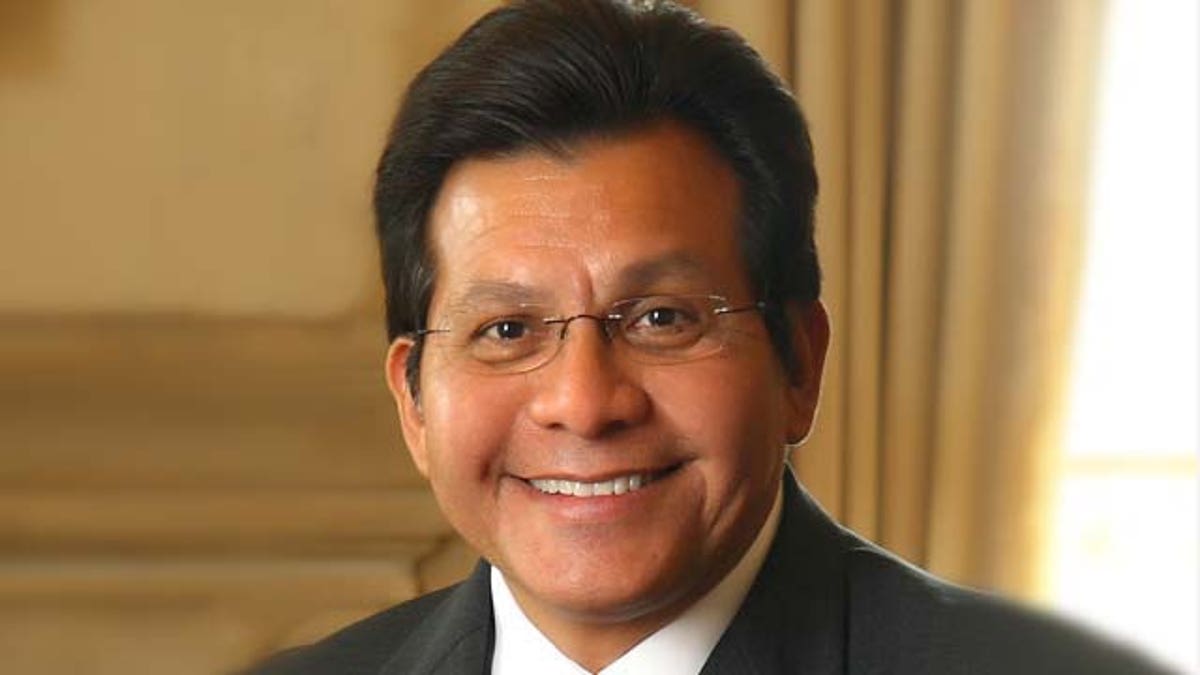
Former Attorney General Alberto Gonzales. (courtesy Alberto Gonzales)
I recently sat down with former Bush administration Attorney General Alberto Gonzales, the first Hispanic in our nation’s history to serve in such a post. In our exclusive interview for Fox News Latino, Gonzales cautioned Mitt Romney against picking an Hispanic vice president as he prepares for the Republican Party convention and the November election.
Gonzales, who has endorsed Romney, said he doubts that “Hispanics are going to support Governor Romney simply because he puts [Florida Senator] Marco Rubio on the ticket or any other Hispanic on the ticket.”
The former Texas Supreme Court Judge concedes Republican Party’s rhetoric during the primaries was "harsh" on immigration "and hurt the party with respect to bringing Hispanics on board.”
Gonzales suggested that the best way for Romney to repair relations with Latino voters, who currently give more than 60 percent of their vote to President Obama, is through sincere outreach program based on economic policies that will help Hispanics.
Along those lines, Gonzales supports Senator Rubio’s efforts to produce a GOP version of the “DREAM” Act as key to Romney efforts to reach out to Hispanic voters.
When I recently interviewed Sen. Rubio, he told me that Democratic Party proposals to allow young people who were brought into the U.S. without documentation -- and are now enrolled in college or the military -- to gain citizenship will not win Republican support in Congress. But he said he is working on a version of the “DREAM Act” that will allow those young people to avoid deportation and stay in the United States.
Any Republican effort to help those young people who are here illegally but are educated and possibly have military experience is essential, Gonzales believes, to repairing the GOP’s relationship with Hispanics.
In our interview we also touched on the controversial issue of immigration. Gonzales is a Republican but he differs from many in his party in that he is critical of Arizona’s controversial S.B. 1070 “Papers Please” law.
He bases his opposition to S.B. 1070 on what he sees as the potential for racial profiling in the application of the law. And he thinks the responsibility for immigration enforcement lies with the federal government. “The states,” he said, “do not have the authority here. In a perfect world, these states wouldn’t be passing these kinds of laws. Congress and the president would work together, and pass immigration reform.”
The son of migrant workers from Mexico and the first in his family to go to college, Gonzales’s story epitomizes the American Dream. As he tells it he is “the son of [parents who only had a second grade education] a cotton-picker and construction worker, [who] grew up in a family home that my dad built, [with] no hot running water [and] no telephone. And this person becomes the Attorney General of the United States."
He became an accomplished jurist in his home state of Texas, serving as Secretary of State and a justice on the state Supreme Court before arriving in Washington, D.C. with President George W. Bush.
“This is still a country where dreams still come true,” Gonzales says as he describes his life story. “And for that reason, America’s worth fighting for, and America is worth dying for. “
Gonzales became a close adviser and confidant of George W. Bush when he was governor of Texas and followed him to Washington when he became president. Bush tapped him to the office of White House Counsel and in his second term, appointed him to be the first Hispanic Attorney General of the United States.
President Bush also reportedly considered nominating Gonzales to be the first Hispanic justice on the U.S. Supreme Court.
However, early in his tenure, Gonzales became the poster child for some of the most controversial policies of the Bush administration – from the politically-motivated firing of several U.S. attorneys to anti-terrorism policies like warrantless wiretapping and water-boarding although most of these policies were enacted under his predecessor, Attorney General John Ashcroft.
Hard-line conservatives never felt Judge Gonzales was one of them and some critics caricatured him. They portrayed him as over his head in the job of White House Counsel.
Other critics attacked him as an affirmative action hire, a token minority handpicked by a white president to indiscriminately rubber stamp all of his policies with the Justice Department’s seal of approval. Liberal comedian Bill Maher once called him a Mexican mob lawyer. Novelist Gore Vidal sneered that he “should have gone back to Tijuana.”
Because of the rough treatment in Washington his promising career in law and politics was abruptly cut short. After leaving the Bush administration, the major law firms in New York and Washington, DC would not even hire the former Attorney General for a job as counsel.
Fast forward to 2012: Gonzales, who now teaches law in Nashville and works for a law firm there, says he wants Romney to win. He told me he has reached out to the Romney campaign but they have been slow to respond. He suspects that his ties to the Bush administration make Romney’s team reluctant to embrace him. But whether he winds up working with the Romney campaign or not, Gonzales looks forward to doing whatever he can to help Romney’s team with Hispanic outreach.







































